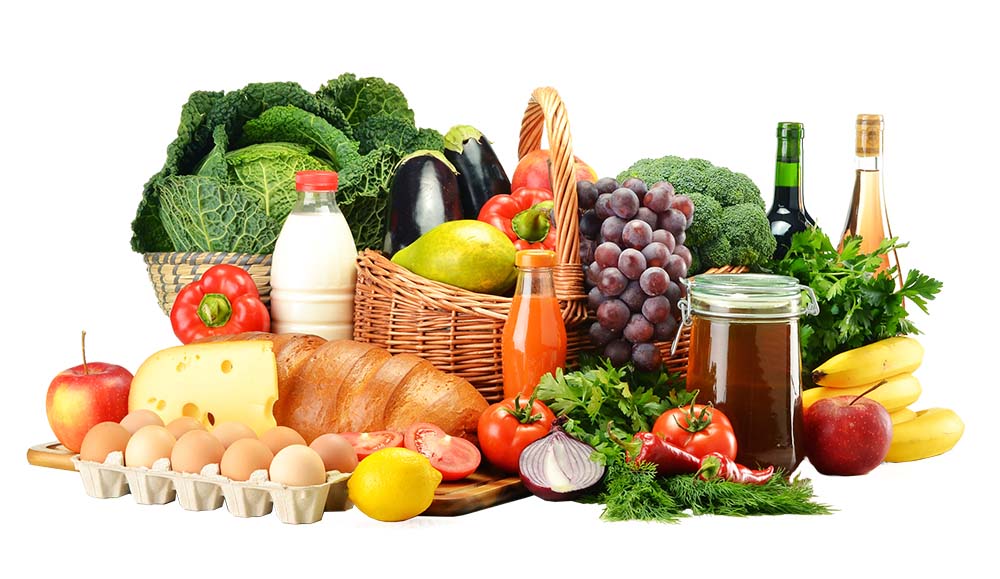
As we approach 2025, the Gulf Cooperation Council (GCC) countries – comprising Bahrain, Kuwait, Oman, Qatar, Saudi Arabia, and the United Arab Emirates – continue to present lucrative opportunities for food exporters worldwide. With their growing populations, increasing tourism, and limited agricultural resources, these nations heavily rely on imported foodstuffs to meet their dietary needs. This article explores the top food exports that are expected to dominate the GCC markets in 2025, taking into account evolving consumer preferences, health trends, and cultural factors.
The health-conscious movement has gained significant traction in the GCC region, driving demand for organic and nutrient-rich foods. By 2025, we anticipate a surge in the following health food exports:
a) Superfoods: Products like quinoa, chia seeds, acai berries, and kale are expected to see increased demand as GCC consumers become more health-aware.
b) Organic fruits and vegetables: With limited local production, imported organic produce will likely fill the gap for consumers seeking pesticide-free options.
c) Plant-based protein alternatives: As vegetarian and vegan lifestyles gain popularity, plant-based meat substitutes and dairy alternatives are projected to see substantial growth.
d) Functional foods and beverages: Products fortified with vitamins, minerals, and probiotics are anticipated to appeal to health-conscious consumers.
Given the predominantly Muslim population in the GCC, halal-certified foods remain a cornerstone of the market. In 2025, we expect to see:
a) Halal-certified convenience foods: Ready-to-eat meals, snacks, and frozen foods that adhere to halal standards will likely see increased demand.
b) Halal meat and poultry: As the population grows, the need for imported halal meat products is expected to rise, particularly from countries known for high-quality halal meat production.
c) Halal confectionery and desserts: Sweets and chocolates that meet halal requirements are projected to grow in popularity, especially during festive seasons.

With rising disposable incomes and a growing expat population, the demand for gourmet and specialty foods is expected to increase. Key areas include:
a) Artisanal cheeses: European cheeses, in particular, are likely to see growth in imports as GCC consumers develop more diverse palates.
b) Premium coffee and tea: Specialty coffee beans and luxury tea blends are anticipated to appeal to the region’s cafe culture and discerning consumers.
c) Truffles and caviar: These luxury food items are expected to maintain their appeal in high-end restaurants and among affluent consumers.
d) Exotic fruits: Fruits that are not native to the region, such as berries, cherries, and tropical varieties, are likely to see increased demand.
As urban lifestyles become increasingly fast-paced, the demand for convenience foods is expected to rise. Key products in this category include:
a) Frozen meals: High-quality, gourmet frozen dinners that cater to local tastes are likely to gain popularity.
b) Meal kits: Pre-portioned ingredients with recipes for easy home cooking are expected to appeal to busy professionals and families.
c) Healthy snacks: Nutrient-dense, portable snacks like nuts, dried fruits, and protein bars are anticipated to see growth.
d) Ready-to-drink beverages: Smoothies, cold-pressed juices, and functional drinks are likely to gain traction among health-conscious consumers.
Sustainable and Eco-friendly Food Products:
With growing awareness of environmental issues, sustainable food options are expected to gain importance in the GCC market:
a) Sustainably sourced seafood: As overfishing concerns rise, certified sustainable seafood imports are likely to increase.
b) Plant-based packaging: Foods packaged in biodegradable or recyclable materials are expected to appeal to environmentally conscious consumers.
c) Vertical farm produce: Imports from high-tech vertical farms, which use less water and land, may gain popularity in the water-scarce GCC region.
The diverse expatriate population in the GCC countries drives demand for a wide range of ethnic foods:
a) Asian cuisine ingredients: Products for Chinese, Indian, Filipino, and other Asian cuisines are expected to see continued strong demand.
b) Mediterranean foods: Olive oils, cheeses, and other staples of Mediterranean diets are likely to maintain their popularity.
c) Latin American products: As GCC consumers become more adventurous, ingredients for Mexican, Brazilian, and other Latin American cuisines may see growth.
In the diverse landscape of GCC countries, each nation presents unique opportunities for food exporters. Saudi Arabia, the largest market in the region, shows a strong appetite for halal-certified meat and poultry products, particularly premium cuts that cater to discerning consumers. The kingdom is also seeing a rise in demand for dairy alternatives and plant-based proteins, reflecting a growing health-conscious segment. Interestingly, there’s potential for innovative date-based products that align with local tastes while offering modern twists.
The United Arab Emirates, with its cosmopolitan cities and thriving tourism sector, offers a prime market for gourmet and luxury food items. High-end restaurants and hotels in Dubai and Abu Dhabi are continually seeking premium ingredients to elevate their culinary offerings. The UAE’s diverse expatriate population also drives demand for a wide array of international cuisine ingredients, making it a melting pot of global flavors.
Kuwait’s fast-paced urban lifestyle creates a ripe market for convenience foods and ready-to-eat meals. The country’s fitness-oriented consumer base is increasingly seeking healthy snacks and functional foods, presenting an opportunity for nutrient-dense, on-the-go options. Kuwait’s burgeoning café culture also opens doors for premium coffee beans and specialty teas.
Qatar, preparing for continued growth post-2022 World Cup, shows strong demand for high-quality seafood products, with a particular interest in sustainably sourced options. The nation’s affluent population appreciates fine European delicacies, especially artisanal cheeses. Qatar’s focus on sports and fitness also creates a market for specialized nutrition products and supplements.
In Oman, there’s a growing need for frozen and processed fruits and vegetables to complement local production. The country’s sweet tooth presents opportunities for halal-certified confectionery that caters to local preferences. Oman’s developing food service industry also seeks specialty spices and herbs to enhance its culinary offerings.
Bahrain, despite its small size, offers notable opportunities for food exporters. The island nation is seeing increased demand for organic and natural food products among its health-conscious consumers. There’s also a market for ready-to-cook meal kits featuring international cuisines, catering to busy professionals seeking convenient yet diverse dining options at home. Additionally, Bahrain’s social scene creates demand for innovative non-alcoholic beverages and mocktails, perfect for gatherings and celebrations in this predominantly Muslim country.
The GCC food market in 2025 is shaping up to be a dynamic and diverse landscape, offering numerous opportunities for food exporters. Success in this market will likely depend on understanding the unique blend of traditional values and modern lifestyles that characterize the region. Exporters who can offer high-quality, halal-certified products that cater to health-conscious consumers while also providing convenience are poised to thrive.
As the GCC countries continue to diversify their economies and invest in food security, exporters should also be prepared for potential changes in import regulations and increased competition from local production. However, with their limited agricultural resources and growing populations, these nations are expected to remain significant importers of food products for the foreseeable future.